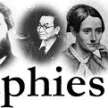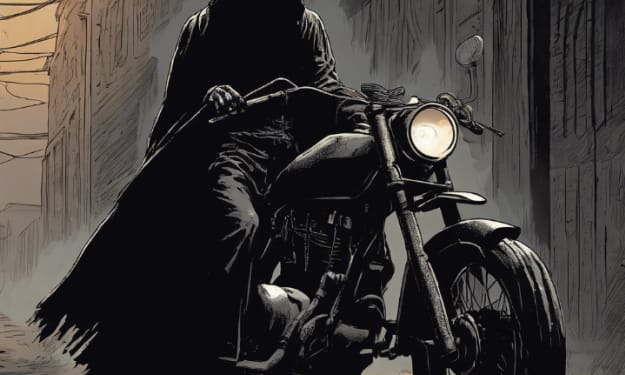Pedro Alonzo Lopez was born in 1949 in Tolima, Colombia, during one of the most tumultuous periods in the country's history, known as "La Violencia." This era, spanning from 1948 to 1958, was marked by intense civil conflict and widespread violence. The chaos began in 1948 when Jorge Eliécer Gaitán Ayala, a prominent Liberal politician and a figure of hope for many Colombians, was assassinated. His death triggered a brutal civil war between the Liberal and Conservative parties, engulfing the nation in a decade-long conflict that resulted in the deaths of over 200,000 people.
The Birth of Pedro Alonzo Lopez
Tolima, the region where Pedro Alonzo Lopez was born, became one of the epicenters of this violent struggle. The impact of "La Violencia" on this region was profound, with communities torn apart by the relentless fighting. For any child born during this time, the environment was harsh and unforgiving, and for Lopez, it was the beginning of a troubled and ultimately infamous life.
Early Life in a War-Torn Country
Growing up in a country ravaged by civil war, Lopez's early years were undoubtedly shaped by the pervasive violence and instability. The social and economic fabric of Colombia was severely disrupted, creating conditions of poverty and desperation that affected countless families, including Lopez's. The war not only disrupted daily life but also shattered the community structures that provided stability and support, leaving many children like Lopez to fend for themselves in an increasingly dangerous world.
The Assassination of Jorge Eliécer Gaitán
The assassination of Gaitán was a critical turning point for Colombia. Gaitán was a charismatic leader with a strong following, advocating for social justice and economic reforms. His death not only ignited the civil war but also shattered the hopes of many Colombians who saw him as a potential catalyst for positive change. The subsequent violence and lawlessness created a breeding ground for further criminal activities and social decay.
The Impact of "La Violencia" on Colombian Society
The decade of "La Violencia" left deep scars on Colombian society. Entire regions were depopulated, economies were disrupted, and a culture of violence took root. For young Pedro Alonzo Lopez, the daily exposure to brutality likely had a profound effect on his psychological development, contributing to the path he would eventually take.
Children like Lopez, who grew up witnessing and experiencing such violence, often found themselves desensitized to brutality. The breakdown of traditional family structures and community support systems meant that many young people were left without guidance or positive role models. The pervasive violence became a part of their daily reality, normalizing behaviors that, in more stable environments, would be considered aberrant.
Lopez's Troubled Path
As Lopez grew older, the impact of his early environment became more apparent. His criminal activities began at a young age, initially involving petty theft and escalating to more serious crimes as he matured. The lack of a stable home life and the constant exposure to violence and crime contributed to his development into one of the world's most notorious serial killers.
The Murders
Pedro Alonzo Lopez's criminal career reached its peak in the late 1970s and early 1980s when he claimed to have murdered over 300 young girls across Colombia, Ecuador, and Peru. His method was chillingly consistent: he would lure young girls away from their families, often using charm and deceit, before brutally assaulting and killing them. His ability to operate across multiple countries without detection for so long highlights the challenges faced by law enforcement in regions plagued by instability and underdevelopment.
Arrest and Confession
Lopez was eventually apprehended in 1980 in Ecuador. His arrest came after an attempted abduction was thwarted, leading to his capture by local authorities. During his interrogation, Lopez confessed to an unimaginable number of murders, providing detailed descriptions of his crimes and the locations of his victims' bodies.
His confessions, while horrifying, also underscored the deep psychological scars left by his upbringing during "La Violencia." Lopez described a sense of detachment and lack of empathy, traits often developed by those exposed to extreme violence from a young age. His ability to commit such heinous acts without remorse speaks volumes about the long-term effects of growing up in a war-torn environment.
The Legacy of "La Violencia"
By the time the civil war ended in 1958, Colombia had been profoundly changed. The country faced the daunting task of rebuilding and healing from years of internal strife. However, the legacy of violence persisted, influencing subsequent generations and contributing to ongoing cycles of conflict and crime.
Pedro Alonzo Lopez is, in many ways, a product of this environment. His story is a stark reminder of the human cost of prolonged conflict and the lasting impact it can have on individuals and societies. The normalization of violence, the breakdown of social and familial structures, and the pervasive sense of instability all played roles in shaping Lopez's path.
Conclusion
Pedro Alonzo Lopez's birth during the height of "La Violencia" in Tolima, Colombia, set the stage for a life that would later become infamous. The violence and instability of his early environment were defining factors that shaped his future actions. Understanding the historical context of Lopez's early years provides crucial insights into the roots of his notorious behavior and the broader impact of Colombia's turbulent past.
Lopez's story serves as a grim reminder of the far-reaching consequences of civil conflict. It underscores the importance of addressing the root causes of violence and instability to prevent future generations from following a similarly tragic path. While Lopez's actions can never be excused, they can be better understood through the lens of the environment in which he was raised, highlighting the urgent need for peace and stability in regions still grappling with the legacies of conflict.
About the Creator
Biographies
I love to write on different type of topics on vocal.media.
Enjoyed the story? Support the Creator.
Subscribe for free to receive all their stories in your feed. You could also pledge your support or give them a one-off tip, letting them know you appreciate their work.







Comments
There are no comments for this story
Be the first to respond and start the conversation.